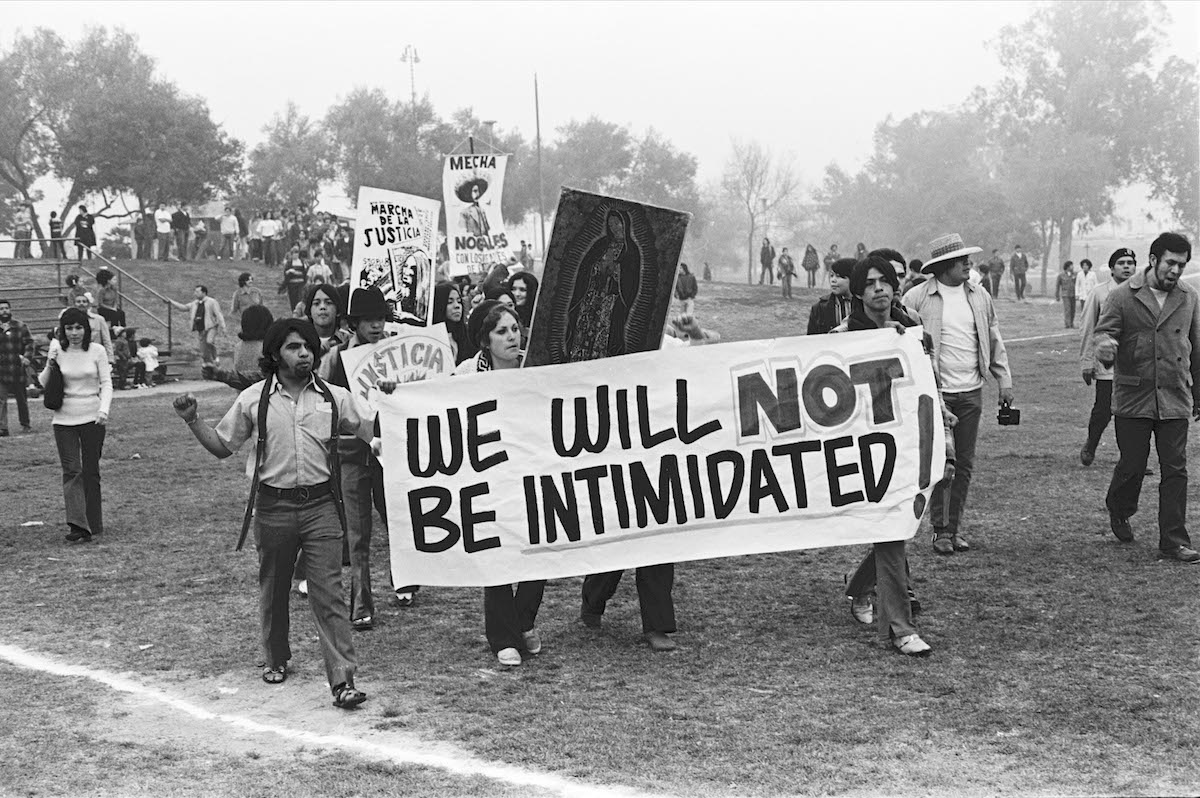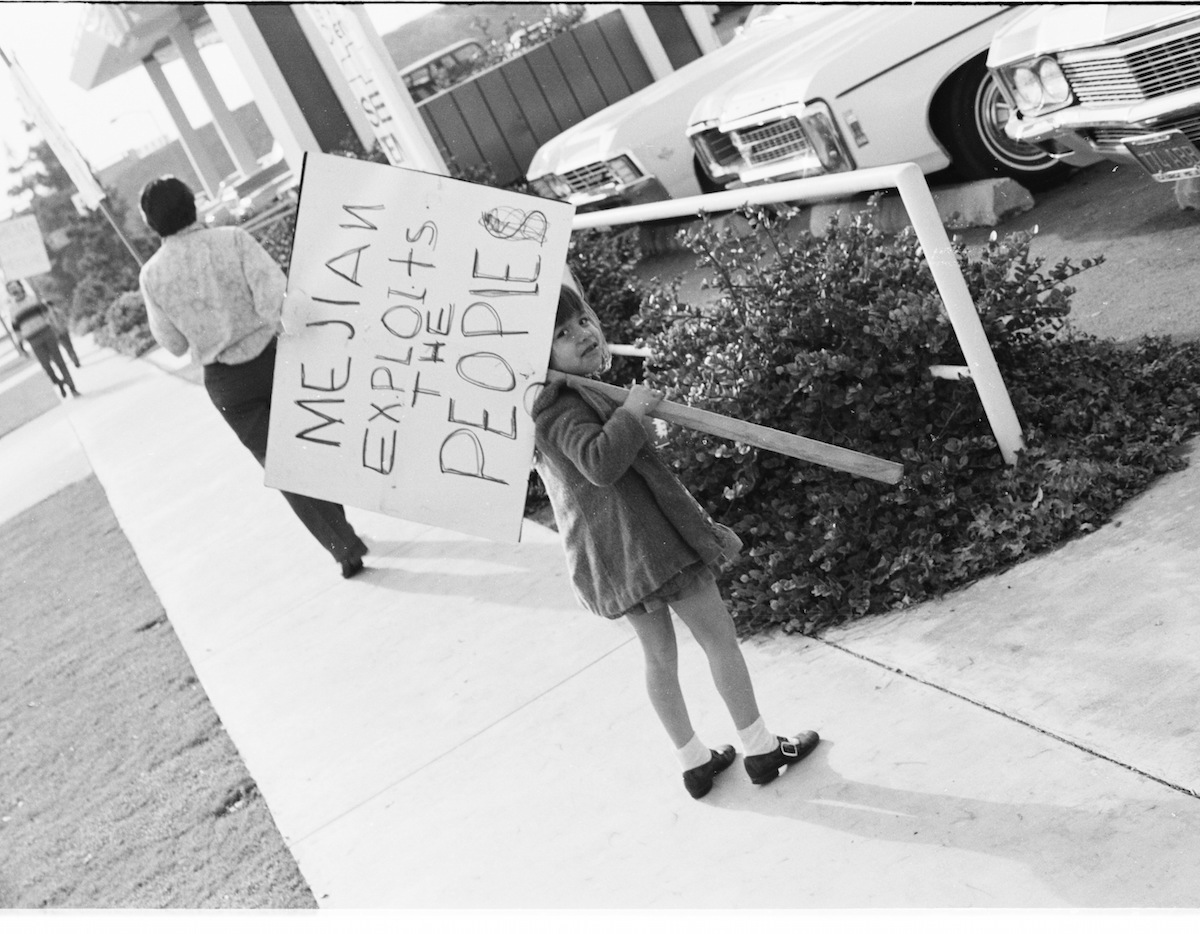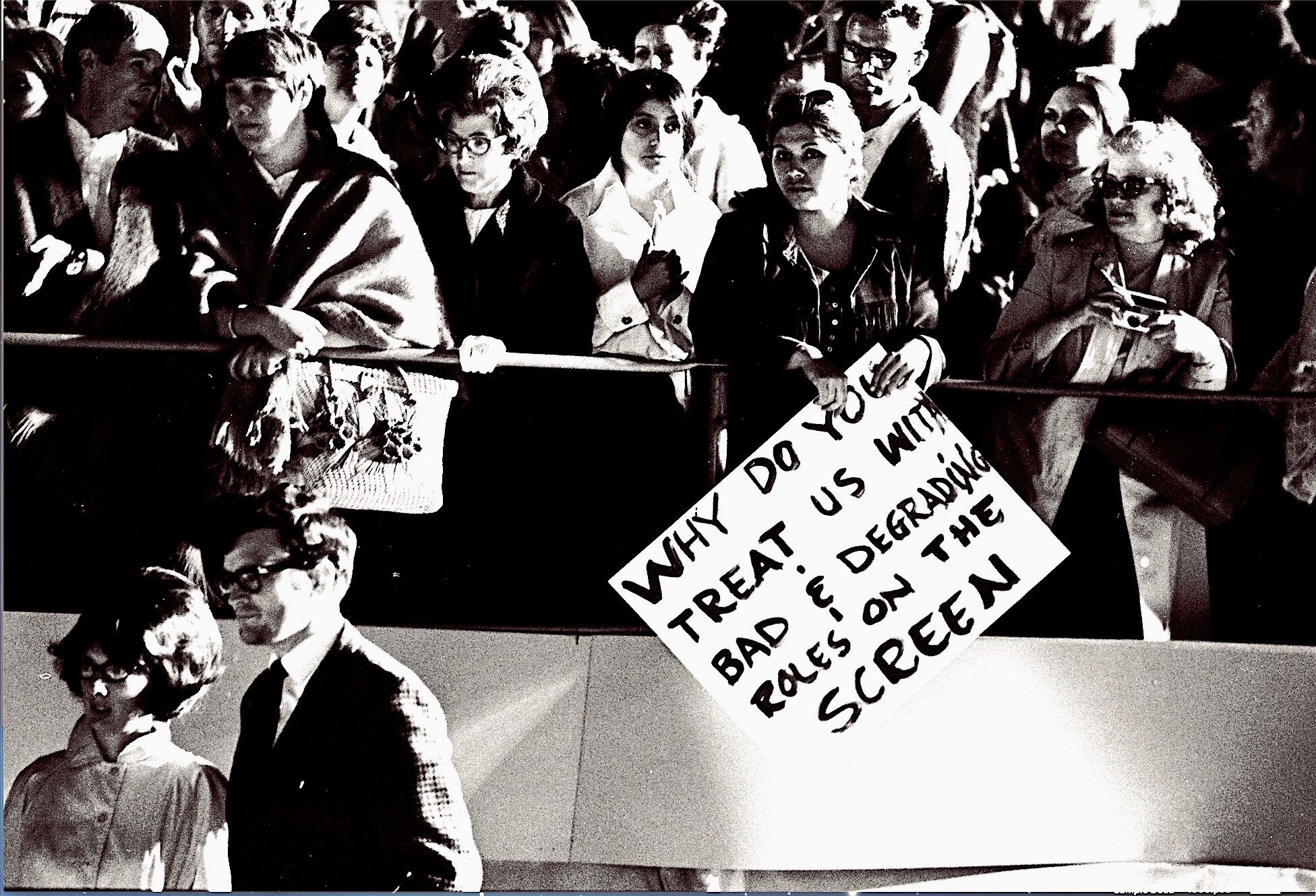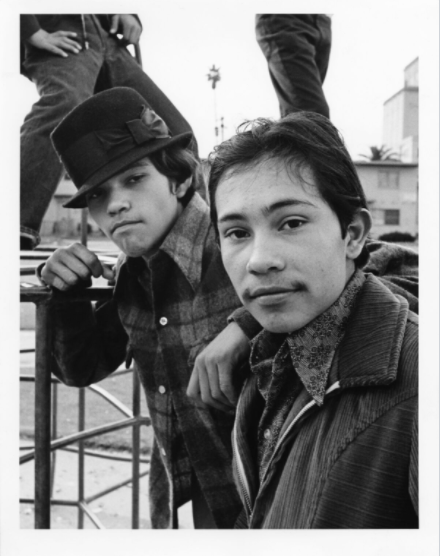In the 1960s and 70s, the United States went through one of its most turbulent eras. A series of civil rights battles rocked the country at home. Meanwhile, the government deployed the military to fight in the contentious Vietnam War abroad. On the West Coast, a less-publicized struggle was also forging: the Chicano Movement. “El Movimiento,” as some call it, was a convergence of several Mexican-American conflicts, from an anti-discrimination youth movement and a labor and farmers’ rights struggle to an anti-war crusade and a push for Chicano empowerment. In the midst of the movement was La Raza, a publication exposing the mistreatment of Mexican Americans and empowering them to become activists in the fight.
Operating from 1967 to 1977, it started as a bilingual newspaper and evolved into a national magazine. In September – on the 50th anniversary of the publication’s founding – Los Angeles’ Autry Museum of the American West will open LA RAZA, an exhibition displaying hundreds of previously inaccessible images taken by the magazine’s activist-photographers. The exhibition offers a nuanced look at the resilience of California’s Mexican-American community.

“How do you inspire people to become a part of an effort to better their lives, better our lives?”
The images – drawn from an archive of more than 25,000 photos housed at UCLA’s Chicano Studies Research Center – are a window into the Chicano Movement. The pictures capture iconic events like the mass walkouts of high school students in the late 1960s, the Chicano Moratorium – a series of anti-Vietnam War demonstrations – and the thousand-mile La Marcha de la Reconquista. More than that, the images will show that photography can empower activists and articulate their concerns and issues visually, just as La Raza did decades ago.
Throughout the pages of La Raza, pictures became powerful arguments for equality and social justice. According to Luis C. Garza, a former photographer for La Raza and a co-curator and chief researcher for the exhibition, photos acted as organizing tools for the Mexican-American community.
“The saying goes that a picture’s worth a thousand words, so imagine all these images speaking all those words as people looked at the pages,” he tells me. “How do you inspire people to become a part of an effort to better their lives, better our lives? Publishing, with its written words and visual imagery, can do that.”

“I don’t think they were seeking in the movement to create art or even a collective visual statement.”
At the time, Garza, who didn’t have previous experience in media or the arts, saw himself as an activist, not necessarily a photojournalist or artist. Spanish-language news existed, but in a limited scope. And the periodicals that existed often only translated dispatches from the Associated Press in Spanish or focused exclusively on issue occurring in Latin America. For Garza, who worked at La Raza from 1968 to 1972, the publication served as an underground platform that informed and engaged his community. It was movement work, a way to be connected to the community and create real change.
Like Garza, much of the La Raza team didn’t have formal training in photography, graphic design, or reporting. “I don’t think they were seeking in the movement to create art or even a collective visual statement,” Amy Scott, chief curator at the Autry, says. “They were just taking a handful of individual pictures. But when the photos did come to light, the exhibition potential of the archive was significant in terms of photographic history in the American West.”
Together, Garza and Scott have sifted through thousands of negatives, most of them unseen in the last five decades. They picked just 200 photos to digitally print, frame, and install on the walls of the exhibition.

“It’s a tremendous territorial challenge. In most shows, there’s a known body of work or there’s a sense of the artist, period or collective, so you can pull the most striking examples. But with 25,000 images at hand, that’s not possible with La Raza’s archive. This is not an attempt to be definitive or comprehensive but rather to sketch in the broadest way what it is that makes the project sync and how the photos collectively make the argument for an end to institutionalized racism,” Scott said.
“When you step into the exhibition tour, we want you to feel like you’re stepping into an issue of La Raza.“
The exhibition is part of the Getty-led Pacific Standard Time: LA/LA initiative, which features an unprecedented number of art exhibits exploring the connections between Latin America and Los Angeles. LA RAZA is comprised of seven different sections: “Introduction: The Photographers and the Newspaper,” which will include covers of the publication and portraits of its photographers; “Action, Agency, & Movement,” sharing photos of iconic events; “Portraits of a Community,” images that reflect the movement’s multigenerational appeal; “The Other and the State,” portraits that capture police surveilling and thwarting actions; “The Body,” images of police violence; “Signs of the Times,” photos of protests signs, posters, banners, flags, and street art; and an “Interactive Touchscreen Table,” which will allow visitors to explore more than 12,000 images from La Raza‘s archive.

The curators attempted to recreate the visual energy of the magazine, placing graphic art, political cartoons, poetry, political writing, printmaking, and satire pulled from the publication alongside the portraits. “When you step into the exhibition tour, we want you to feel like you’re stepping into an issue of La Raza,” Scott says.
That experience for Garza has brought a whirlwind of emotions: nostalgia, fulfillment, orgullo. But he and his colleagues, many of whom also participated in the exhibition, describe it simply as a reemergence. He says, “It’s a recovering, a renacimiento profundo.”
LA RAZA will open on September 16, 2017 and run through January 2019 at the Autry Museum in Griffith Park in Los Angeles. For information on public programs held in concert with the exhibition, visit the Autry’s website.







